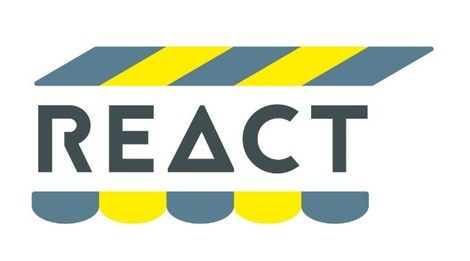Climate Action, Environment, Resource Efficiency & Raw Materials - REACT
Introduction
The “Recycling of Waste Acrylic Textiles” (REACT) project is concerned with the end-of-life of acrylic textiles originating from awnings, umbrellas and outdoor furnishings. The project is funded by the European Commission as part of the Horizon 2020 programme, and involves 7 partners in 5 European countries: Centrocot (Italy), Ghent University (Belgium), Parà (Italy), Soft Chemicals (Italy), Jak Spinning (Hungary), CETI (France) and Martel (Switzerland). The project is coordinated by Roberto Vannucci (Centrocot) and is expected to take 3 years. Ghent University started its involvement in September 2019.
Project description
“Recycling” is a word that appears more and more often, yet waste recycling processes are still tackled inappropriately in the E.U., while landfill and incineration rates remain high. One of the main problems is that recycled materials are often of inferior quality to virgin materials because of contamination, treatments and inherent degradation.
The REACT project addresses the management of waste acrylic textiles from the outdoor awnings, umbrellas and furnishings sector. A crucial issue is the analysis and removal of finishing substances and colourants that affect the recycled material’s purity. Once these are removed and safely disposed of, a mechanical recycling process will be implemented to obtain new fabrics. To maximize the impact of the project, any new designs, technology, standards, process implementation, etc. will be transferred to other industrial sectors.
Objectives
These are the objectives of REACT:
- Remove 90-95% of those hazardous substances whose presence could adversely affect the quality of the recycled material or prevent their recycling
- Treat up to 99% of all sewage impurities obtained from the removal steps (e.g. in waste water)
- Obtain a final textile product with yarn coming from 100% recycled acrylic fibres.
- Use the recycled acrylic fibres as a raw material for other production cycles in combination with virgin fibres, to prevent 30% of waste from the outdoor sector (3600 tonnes).
- Produce recommendations for production chain implementation (management and recovery of production scraps) and design and manufacturing of materials to enhance recyclability, recommendations for technology transfer (to other products and applications), and recommendations for standards.
Role of Ghent University
Ghent University has assigned a Ph.D. student to work on the analysis and removal of finishing compounds and colourants in the waste acrylic textiles. The research is carried out in the Department of Materials, Textiles and Chemical Engineering (MaTCh) in Gent-Zwijnaarde and the Department of Green Chemistry and Technology in Kortrijk.
Website
Contact
Prof. Karen De Clerck
Department of Materials, Textiles and Chemical Engineering (MaTCh)
Phone number: 09 264 57 40
E-mail
Prof. Steven De Meester
Department of Green Chemistry and Technology
Phone number: 056 24 12 36
E-mail
